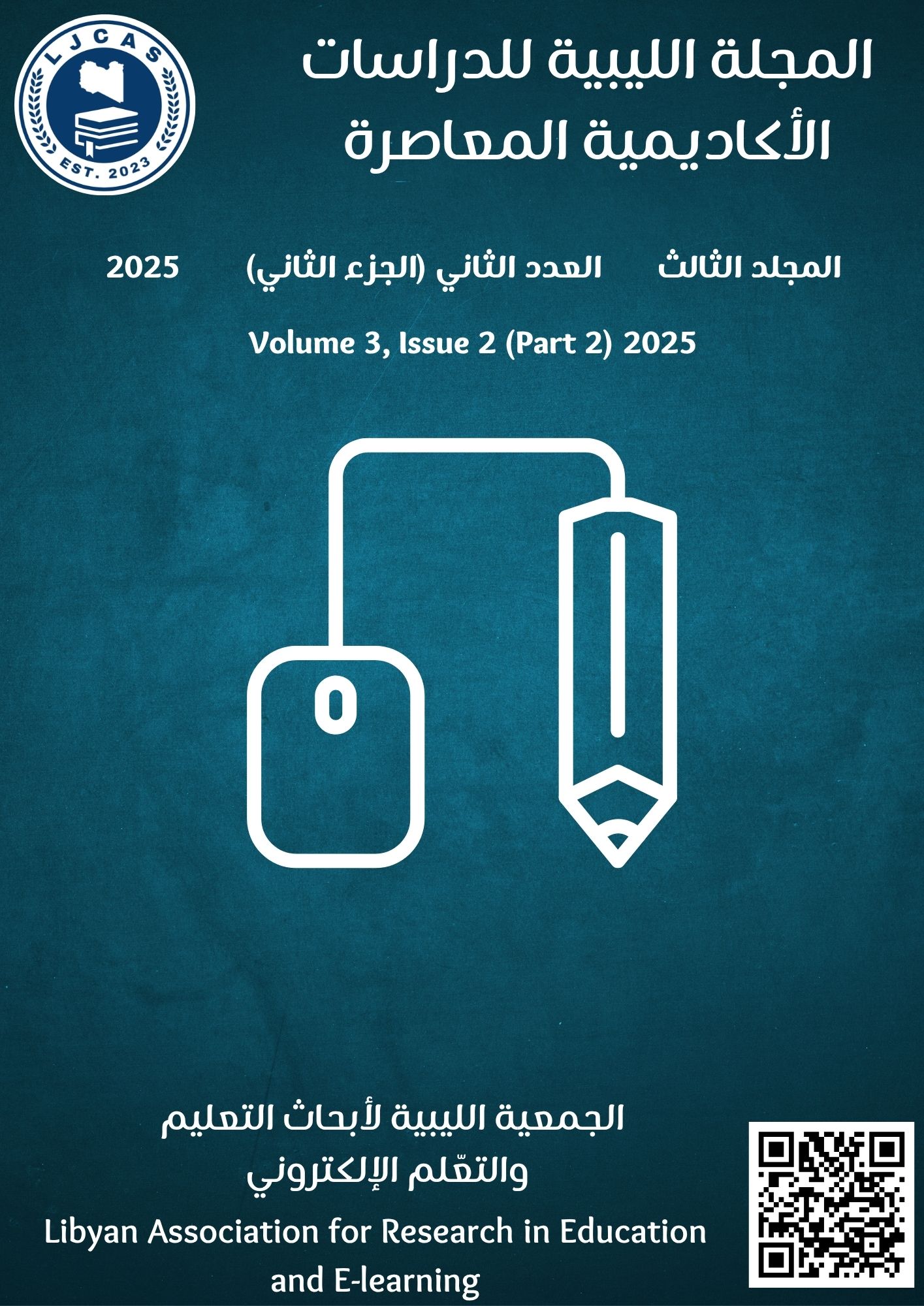The Jurisprudential Methodology of Sheikh Muhammad Rabea in His Book, "The System of the Judicial Authority in Islamic Sharia": An Analytical Study
DOI:
https://doi.org/10.65417/ljcas.v3i2.191Keywords:
Muhammad Rabea, Jurisprudential Methodology, Judicial Authority, Maliki School of Thought, Legal Policy (Al-Siyasa Al-Shar'iyya).Abstract
This analytical study aims to uncover the Jurisprudential Methodology of Sheikh Muhammad Rabea, one of the most prominent contemporary Libyan scholars, through an analysis of his book "The System of the Judicial Authority in Islamic Sharia." The study employed the inductive-analytical approach and demonstrated that his methodology is characterized by a combination of authenticity (represented by adherence to the fundamentals of the Maliki school of thought) and contemporaneity (represented by an awareness of modern systems and reality requirements). The study addressed the most prominent features of his approach, such as attention to textual evidence from Sharia, consideration of the overall objectives (Maqasid) of Sharia in achieving justice, and a practical tendency in formulating solutions. It also revealed his method of presenting and balancing jurisprudential opinions, and giving preference based on evidence and public interest (Maslaha). The study concluded that the Sheikh utilized the principles of legal policy (Al-Siyasa Al-Shar'iyya) to codify emerging issues, such as the adoption of reasoned judgments to ensure fairness, confirming that his approach is an effective continuation of the authentic jurisprudential school in addressing contemporary judicial issues.







